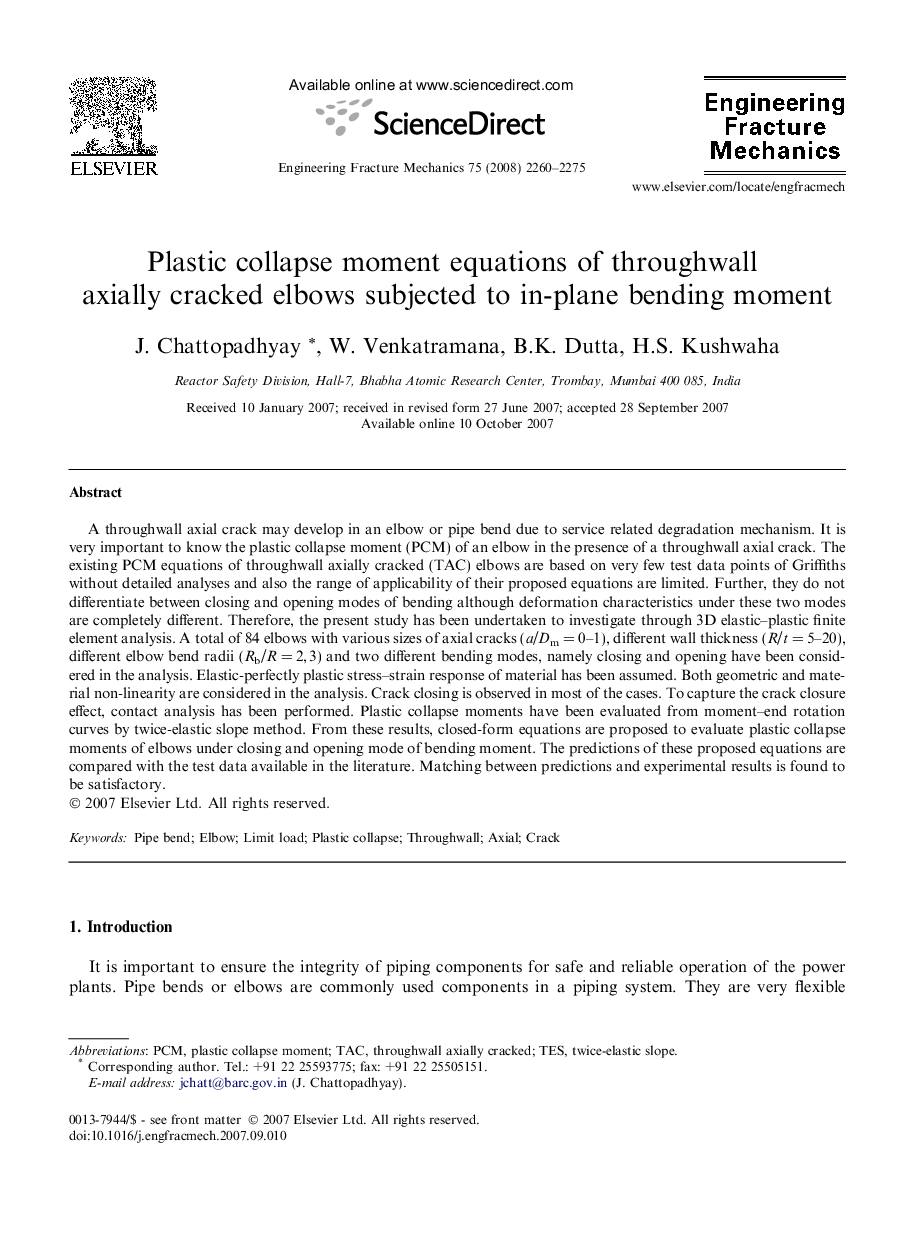| Article ID | Journal | Published Year | Pages | File Type |
|---|---|---|---|---|
| 771297 | Engineering Fracture Mechanics | 2008 | 16 Pages |
A throughwall axial crack may develop in an elbow or pipe bend due to service related degradation mechanism. It is very important to know the plastic collapse moment (PCM) of an elbow in the presence of a throughwall axial crack. The existing PCM equations of throughwall axially cracked (TAC) elbows are based on very few test data points of Griffiths without detailed analyses and also the range of applicability of their proposed equations are limited. Further, they do not differentiate between closing and opening modes of bending although deformation characteristics under these two modes are completely different. Therefore, the present study has been undertaken to investigate through 3D elastic–plastic finite element analysis. A total of 84 elbows with various sizes of axial cracks (a/Dm = 0–1), different wall thickness (R/t = 5–20), different elbow bend radii (Rb/R = 2, 3) and two different bending modes, namely closing and opening have been considered in the analysis. Elastic-perfectly plastic stress–strain response of material has been assumed. Both geometric and material non-linearity are considered in the analysis. Crack closing is observed in most of the cases. To capture the crack closure effect, contact analysis has been performed. Plastic collapse moments have been evaluated from moment–end rotation curves by twice-elastic slope method. From these results, closed-form equations are proposed to evaluate plastic collapse moments of elbows under closing and opening mode of bending moment. The predictions of these proposed equations are compared with the test data available in the literature. Matching between predictions and experimental results is found to be satisfactory.
